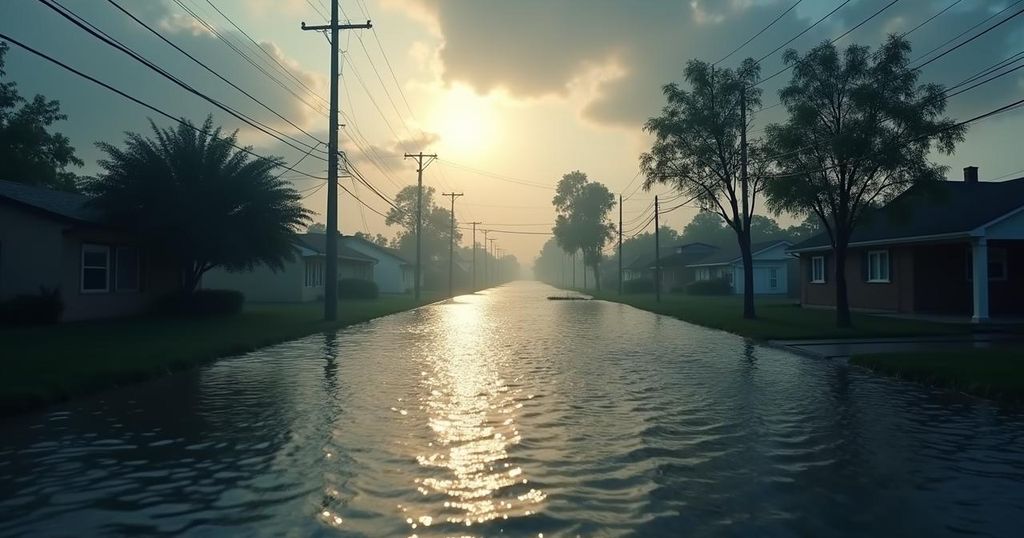FEMA Administrator Deanne Criswell attributed the devastating effects of Hurricane Helene, which has led to at least 88 fatalities and historic flooding, to climate change. Criswell emphasized the role of warmer Gulf waters in intensifying storms and altering damage patterns, particularly increasing water damage. Rescue efforts in affected states are ongoing amid widespread infrastructure challenges, especially in North Carolina, where historic flooding has occurred.
In a recent statement, Deanne Criswell, Administrator of the Federal Emergency Management Agency (FEMA), attributed the catastrophic aftermath of Hurricane Helene to climate change. The storm, which resulted in at least 88 fatalities and extensive flooding from the Florida coastline to the Appalachian Mountains, showcased unprecedented levels of water damage, according to FEMA’s assessment. During an appearance on CBS’s “Face the Nation,” Criswell noted the correlation between warmer Gulf waters and the escalating intensity of storms like Helene. “This storm took a while to develop, but once it did, it developed and intensified very rapidly. And that’s because of the warm waters in the Gulf,” she stated. Moreover, she emphasized the shift in hurricane damage patterns, remarking, “In the past, when we would look at damage from hurricanes, it was primarily wind damage, with some water damage. But now we’re seeing so much more water damage. And I think that is a result of the warm waters, which is a result of climate change.” Criswell detailed significant destruction across multiple states, highlighting North Carolina’s historic flooding, particularly in its western regions, where she expressed concern over unpreparedness for the severe conditions. She confirmed that ongoing rescue efforts were hampered by blocked roads and widespread damage to infrastructure. The situation has raised concerns for public safety, prompting North Carolina Governor Roy Cooper to advise residents to stay off roads to facilitate emergency services. Meanwhile, further fatalities may be uncovered as rescue teams access previously unreachable areas. The disaster’s ramifications stress the increasing frequency of severe weather events attributed to global climate change.
Hurricane Helene has emerged as a devastating event in the context of discussions around climate change and extreme weather. As the frequency and intensity of hurricanes appear to rise, FEMA’s insights underscore the critical relationship between environmental factors and storm impacts. Traditionally, hurricanes predominantly caused wind damage, but recent trends indicate a paradigm shift towards significant water-related damages. This shift poses new challenges for emergency preparedness and response.
In conclusion, the remarks made by FEMA Administrator Deanne Criswell serve as a stark reminder of the link between our changing climate and the increasing severity of natural disasters. Hurricane Helene’s impact illustrates the growing threat of historic flooding and infrastructure damage, necessitating a reevaluation of disaster preparedness in the face of climate change. It is imperative for communities to adapt to these evolving challenges as the risks continue to escalate.
Original Source: www.ibtimes.com







